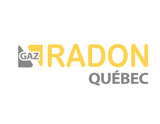Radon is an invisible, odorless and potentially dangerous radioactive gas. Did you know that it is present in many homes in Quebec? If you are looking for information on radon testing , detectors and solutions to reduce its concentration , you are in the right place. This article offers you a comprehensive approach to protect your home, your health and that of your loved ones.
What is radon and why is it dangerous?
Radon comes from the breakdown of uranium in soil and rocks. It can enter your home through:
- Cracks in the foundations.
- The joints of the walls.
- The openings around the ducts.
Why bother?
- Radon is the second leading cause of lung cancer after tobacco.
- Prolonged exposure to high levels can have serious health consequences.
What is an acceptable level of radon?
In Canada, a concentration above 200 Bq/m³ (becquerels per cubic meter) requires action. Quickly measure the radon concentration in your home to take action.
Why should you test your home for radon?
Testing your basement or residential area for radon is essential to assess your exposure level. Here are the main reasons to test your home:
- Health Protection : Identify if your levels are dangerous.
- Compliance : More and more home buyers are requiring a radon report prior to purchase.
- Prevention : Early detection can prevent costly expenses related to health problems.
The different options for testing radon
1. Rapid radon test (4 days)
This test is ideal for getting a quick assessment . It is perfect in situations like:
- An urgent real estate sale.
- A first estimate of radon levels.
However, due to seasonal variations, it is recommended to confirm the results with a long-term test .
2. Long-term testing (91 days or more)
This test is considered the most reliable, because it takes into account:
- Daily fluctuations.
- Seasonal variations.
👉 Tip : You can order a long-term detector from Gaz Radon Québec for a precise analysis.
How does a radon detector work?
A radon detector measures the amount of radioactive particles emitted into the air. You have two main options:
-
Passive detectors :
- Easy to use.
- Inexpensive.
- Ideal for one-off testing.
-
Electronic detectors :
- Provide real-time results.
- Recommended for continuous monitoring.
Where to place the detector?
- Install it in high traffic areas , such as the basement or living rooms.
- Avoid places exposed to drafts (windows, ventilation ducts).
What to do if your radon levels are high?
If your test reveals levels above 200 Bq/m³ , several solutions are available:
-
Improved ventilation :
- Increase air exchange in basements and enclosed spaces.
-
Crack sealing :
- Seal cracks in foundations to limit infiltration.
-
Active Soil Depressurization Systems (SDAS) :
- Most effective method to significantly reduce radon levels.
👉 Contact the experts at Gaz Radon Québec for solutions tailored to your home.
Frequently Asked Questions About Radon
How much does a radon test cost?
A radon test can cost anywhere from $40 to $300 , depending on whether it is a passive or electronic detector.
Radon: what is the risk for children?
Children spend a lot of time at home, often in spaces like basements. Because their lungs are more sensitive, they are at increased risk from prolonged exposure.
Where to buy a reliable radon detector?
You can order a tested and approved detector directly from Gaz Radon Québec .
Why choose Gaz Radon Québec?
Gaz Radon Québec is your trusted partner for:
- Rapid and long-lasting tests : Easy-to-use kits for accurate detection.
- Professional Mitigation Services : Effective solutions to reduce radon levels.
- Complete support : From the purchase of the test to the installation of the reduction systems.
Protect your home today!
Radon is a silent enemy, but with the right tools and an accurate diagnosis, you can protect your health and that of your family. Order a reliable radon test and take steps to reduce its levels if necessary.
➡️ Need help? Consult the experts at Gaz Radon Québec for personalized support.
Take control of your environment and test your home today!

